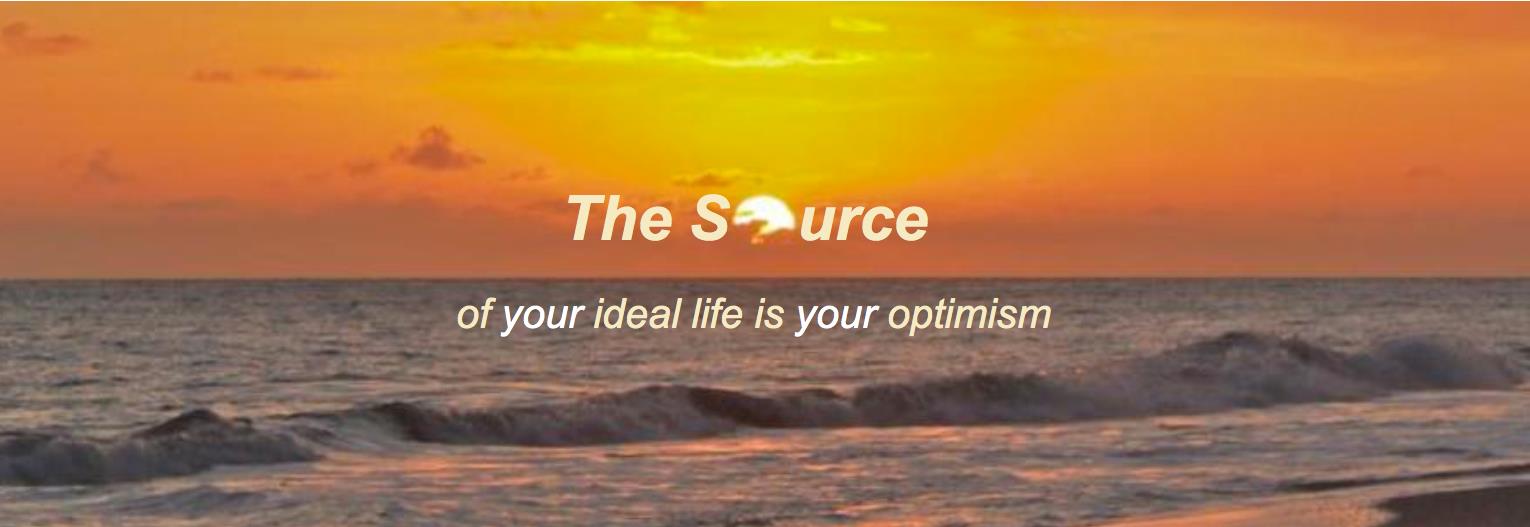|
The eminently brilliant Albert Einstein once said, “The most incomprehensible thing about the world is that it is comprehensible.” John Clark III says, “You will be amazed by what you don’t know.” My statement is actually a double entendre... a double-meaning statement. First of all… when you finally learn all the intricate miracles that occur from the point of your conception to the day of your birth, you will be amazed by the sheer power of The Force greater than we. In fact, whenever we slow down and renew our sense of discovery, we are likely to be amazed at the things on which we focus our attention. Secondly, as we learn more and more, our minds acquire the capability to achieve a reverent awe for the sheer magnitude of the things we just… don’t… know. But what can we say about those things that we DO know? Actually, I have discovered an easy way to achieve a greater sense of understanding within our often-bewildering world of inexplicable people, incomprehensible processes, and the perplexing puzzles of everyday life. And just “How,” you ask, “may we achieve a greater sense of understanding” in this enigmatic world of wonderfully great and sorrowful things (?) HOW? We can achieve a greater sense of understanding by the mere act of acceptance. Many people have initially disagreed with me on this simple, straightforward, and super-powerful statement of (capital-‘T’) Truth. I boldly call this a capital-‘T’ Truth because, despite the fact that many people believe understanding is most important, those same people soon understand that the simple act of acceptance is, indeed, superlative to everything… including and especially the much more complex activity of understanding. In some of my public-speaking forums, certain disbelievers have challenged me on this topic of acceptance versus understanding. Those disbelievers insist that we must understand something before we can accept something. And every single time, the one example that quickly gains their respect while simultaneously changing their minds is my offering of these two little questions:
When I ask the disbelievers these two little questions, the look on their faces is worth a small bucket of cash. I can almost see the synapses firing in their brain as they frantically wrestle with theoretical thoughts, trying to answer the specific questions, but quickly gaining an understanding that their efforts are fruitless and simultaneously proving my capital-‘T’ Truth that the simple act of acceptance is superlative to everything… including and especially the much more complex activity of understanding. You see… we choose to believe what we want to believe. If you still disagree with me, think of the recent visitor to these parts... the Easter Bunny. Or, as time goes on, think of Santa Claus, the Tooth Fairy, and your lucky charm (whatever it might be). Did you... or someone one you love believe in any of the aforementioned things? Behold... the Power of Belief. And what is belief? Isn’t it simply acceptance, with or without understanding? Of course, we love it when our beliefs align with our understanding; such an intersection speaks highly of our ability to incorporate and harness information for our own good. In other words, when our beliefs align with our understanding, we feel smarter… and we feel more in touch with the world. But when understanding escapes us, we are left with the apparently difficult choice of choosing whether or not to believe in this or that. And for many of us, the choice to choose our beliefs is woefully, um, misunderstood. And, as such, we often undervalue and purposefully devalue this magnificent miracle of mankind. Miracle? Yes… a miracle! Think back to those two questions above:
Most people don’t know how television remotes work. Yet they use them everyday to launch a portal that connects them (their self) to an electronic world of channels, networks, frequencies, cultures, philosophies, principles, and (dare I say) beliefs far beyond their own little living room. Similarly, most people don’t know how cellphones work. Yet they use an electronic portal that literally transports their voices all over the world. 150 years ago, anyone and almost everyone would call televisions and cellphones miraculous. Why? Because those people would not have understood how those devices work. In the context of today’s world of electronic gadgetry, we are much more inclined to accept what we do not understand. And, going forward, I encourage you to draw back the curtain on more than just your agreement to engage in “miraculous” electronic gadgetry. In fact, on Day Thirty One of this credible journey, I encourage you to achieve a greater sense of understanding by the mere act of acceptance. Find time to ponder on this grand Truth, and I guarantee you will begin to understand that you do not have to understand everything. And, yet, you will begin to understand that the mere act of acceptance can usher in a profundity of powerful understanding far beyond the capabilities of the most brilliant academics. Indeed, the mere act of acceptance can invoke the Preeminent Power of which we have always known, but often choose to reject, forget, and otherwise refuse to interject into our daily drumbeat of life. In fact, the opening quote by the eminently brilliant Albert Einstein is actually about a belief in a Superlative Force: The most incomprehensible thing about the world is that it is comprehensible. For most of us, the concept of an all-knowing, all-powerful Force is beyond our capability to understand. So, despite our childhood and adult references to a Creative Force, we end up choosing to settle for an artist’s rendition of a finicky creator that has little, if any, interest in our total well-being. In other words, for many of us, despite what Mommy, Daddy and those men in flowing robes taught us, God is simply incomprehensible. And, as such, we say we believe in 'a' god, but, because we don’t fully understand the total concept of God, we freely and openly dismiss the Force that **is** God. Quite simply, we refuse to believe what we don’t understand. And, unlike the use of a remote or a cellphone, in the case of God-like powers, we choose not to use what we don’t understand. When, in reality, we must not seek to understand that we may accept… but instead... we must accept and choose to believe so that we may understand. Today, I ask you to choose to believe in the power of acceptance. Don’t try to understand my point… understanding will come later. Today, I just want you to focus on the fact that your acceptance of inexplicable people, incomprehensible processes, and a perplexing past for whom and what they are is an empowering characteristic that knows no boundaries. Today, seek to understand by first accepting the fact that I have my very own learning lessons (some people refer to these lessons as mistakes; I call them life-long learning lessons). But before you let me off the hook, accept your own previous travels and travails as an awesome walk along a powerful path that is now ordained with an awareness of all the Power you will ever need. Tap into this Power. Meditate today. See you tomorrow. In the meantime... Your mission for today: Journal your thoughts regarding the statement "We must not seek to understand that we may accept… but rather accept and choose to believe so that we may understand." Invest a few minutes discussing how "seeking understanding" is more about acceptance and choosing to believe than it is about absolutely knowing something. For now... SEEK UNDERSTANDING... via acceptance. Forgive. Focus. Find. Accept. Adapt. Achieve. ® John H. Clark III is an optimistic realist.
Principal consultant at The PIE Group, and Executive Director of TeenBuilding USA, [a non-profit 501c(3)], John believes better development of leaders is what we (all) need. And to be better organizations, we need more good leaders, not followers. To build better leaders, we must start with the individual (you, she, he, and me). Described as “an innovative leader,” John teaches leaders, organizations, and individuals how to inspire each other. With a bold goal to inspire a worldwide community of optimistic realists who continuously accept, adapt to, and achieve the bold and beautiful concept of The Ideal Life, John is leading a movement to inspire people to apply his trademarked mantra {Accept. Adapt. Achieve! ®}. An innovative business manager and retired naval officer, John is fascinated by leaders and organizations that make the greatest impact within their organizational culture and within the “real” world — people who “get it.” Over the course of his life as a military leader, corporate mentor, and innovative content creator, John has discovered a wealth of insight about how we think, act and communicate within our respective work/life environments. As a career naval officer, mentor, educator, and optimistic realist, he has devoted his life to sharing insights to assist in our quests to become better at what we all do – live @ work! An optimist with a penchant for writing about realistic solutions to the challenges of everyday life, John is the author of 3 books: a leadership-development insider, The Ideal: Your guide to An Ideal Life, a teen-focused guide, Getting Out: Expert Advice for Today’s Teens, and the Christian-based book, God’s Heartbeat: A Powerful Premise for Leading a Christian Life. He delivers a unique and refreshing point of view to life's seemingly overwhelming situations. Through books, blogs, and everyday conversation, John's message resonates with an empowering blend of ideals that enrich, uplift, and “authorize” people to set and achieve goals far beyond current mindsets. His trademarked phrase is a winner: |
My purposeInspiring a worldwide community of optimistic realists. Archives
April 2024
Categories |



 RSS Feed
RSS Feed
